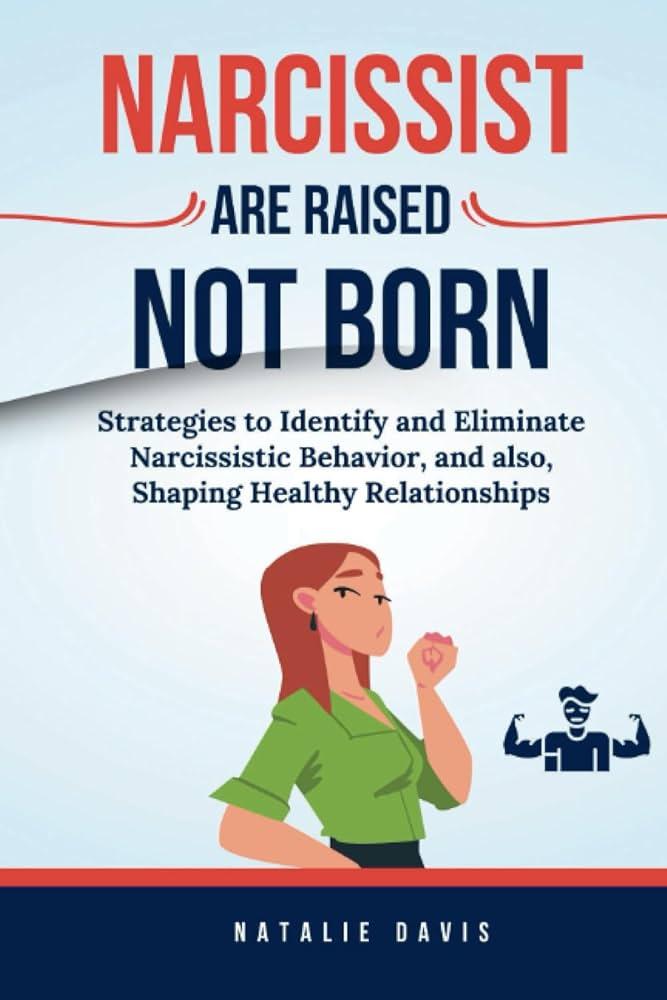Have you ever noticed someone turning every situation into a story about how much they’ve sacrificed or suffered? If so, you might have witnessed the classic move of a narcissist playing the martyr card. It’s a sneaky tactic that often flies under the radar, leaving others feeling guilty, confused, or even manipulated. In this article, we’re going to unpack the narcissist’s secret weapon—the martyr role—and explore why they use it, how it impacts relationships, and most importantly, how you can spot it and protect yourself. So grab a cup of coffee, and let’s dive into this fascinating—and sometimes frustrating—behavior!
Table of Contents
- Understanding the Martyr Role in Narcissistic Behavior
- How Narcissists Use Self-Sacrifice to Manipulate Others
- Spotting the Signs of Martyrdom in Everyday Interactions
- Practical Tips to Protect Yourself from Narcissistic Martyr Games
- Insights and Conclusions
Understanding the Martyr Role in Narcissistic Behavior
In the intricate dance of narcissistic behavior, the martyr role serves as a cunning disguise, allowing the narcissist to mask selfish intentions behind a facade of sacrifice. This role isn’t about genuine selflessness but rather a manipulative strategy designed to garner attention, sympathy, and control. By casting themselves as the endlessly suffering victim or the one who “gives everything,” narcissists skillfully shift the narrative and place themselves at the center of emotional gravity. They masterfully use this act to make others feel guilty or indebted, effectively keeping those around them off balance and compliant.
Recognizing this pattern is crucial for anyone caught in the web of narcissistic dynamics. Here are some tell-tale signs that reveal the martyr act is a performance rather than true altruism:
- Exaggerated self-sacrifice: They often overstate the hardships they endure while downplaying their own needs or responsibilities.
- Emotional manipulation: Their suffering is wielded as a tool to elicit guilt, shame, or obligation in others.
- Resistance to support: They reject help or solutions, as accepting relief would undermine their martyr narrative.
- Need for recognition: Their self-portrayal is almost always designed to ensure others praise or reaffirm their sacrifices.
How Narcissists Use Self-Sacrifice to Manipulate Others
One of the most cunning tactics narcissists deploy is masquerading self-sacrifice as a badge of honor to gain control and sympathy. They will often position themselves as the tireless giver, the one who “puts everyone else first,” crafting an image that demands gratitude and obedience. This performance isn’t about genuine altruism; it’s a strategic move designed to make others feel indebted or guilty, subtly enforcing compliance with their desires. You might notice them saying things like:
- “After everything I’ve done for you…”
- “I guess my needs don’t matter here.”
- “If I’m not willing to sacrifice, no one else will.”
- “I’m the only one who truly cares.”
Behind these statements lies an invisible leash. By repeatedly highlighting the sacrifices they’ve ostensibly made, narcissists create emotional pressure, often leaving their targets walking on eggshells to avoid appearing ungrateful or selfish. This manipulative martyrdom can drain emotional resources, blur moral boundaries, and ultimately serve as a smokescreen for their self-serving agendas—making the act of sacrificing less about others and more about maintaining power.
Spotting the Signs of Martyrdom in Everyday Interactions
Sometimes, what looks like self-sacrifice is actually a carefully choreographed performance. You might notice someone constantly highlighting their hardships or the ways they’ve “suffered for others,” but the underlying message is often less about genuine concern and more about seeking validation or control. This isn’t true empathy—it’s a subtle form of emotional manipulation where the person ensures that the spotlight never leaves them. Classic telltale behaviors include:
- Frequently dropping phrases like “After all I’ve done…” or “No one appreciates me.”
- Turning simple favors into monumental acts of sacrifice.
- Using guilt-tripping as a way to influence decisions or ward off criticism.
Recognizing these patterns can be like decoding an emotional puzzle. The martyr card is played not to heal or help but to gain sympathy and, ultimately, power in social exchanges. Unlike authentic acts of kindness, the martyr complex often comes with invisible strings attached—expectations that others will respond with constant gratitude or compliance. It’s important to differentiate genuine vulnerability from this performative strain because understanding it can protect your emotional energy and promote healthier, more balanced relationships.
Practical Tips to Protect Yourself from Narcissistic Martyr Games
Dealing with someone who constantly plays the martyr can be mentally exhausting. One of the most effective ways to shield yourself is by setting clear boundaries. Communicate your limits calmly and consistently—whether it’s about time, emotional availability, or the level of support you’re willing to provide. Stay firm, because a narcissistic martyr may try to guilt-trip you into crossing those boundaries. Remember, your energy is valuable, and protecting it doesn’t make you selfish; it makes you wise.
Another powerful strategy is to recognize their patterns and avoid engaging in their emotional manipulation. When they begin their game of exaggerating sacrifices or fishing for pity, try to respond with empathy but without validating the martyr narrative. You might use phrases like, “I hear you’re upset, let’s find a solution” rather than, “You’ve suffered so much.” Keeping interactions solution-focused helps prevent escalation and maintains your emotional balance.
Insights and Conclusions
Wrapping things up, understanding the narcissist’s secret weapon—the martyr card—can be a real game changer. It’s not just about recognizing the behavior, but also about protecting your own peace and setting healthy boundaries. Remember, you don’t have to play along or feel guilty for prioritizing yourself. Awareness is your first step toward freedom from manipulation. So next time you spot that martyr act, you’ll know exactly what’s going on—and how to keep your own heart safe. Thanks for reading, and here’s to healthier relationships and stronger selves!

